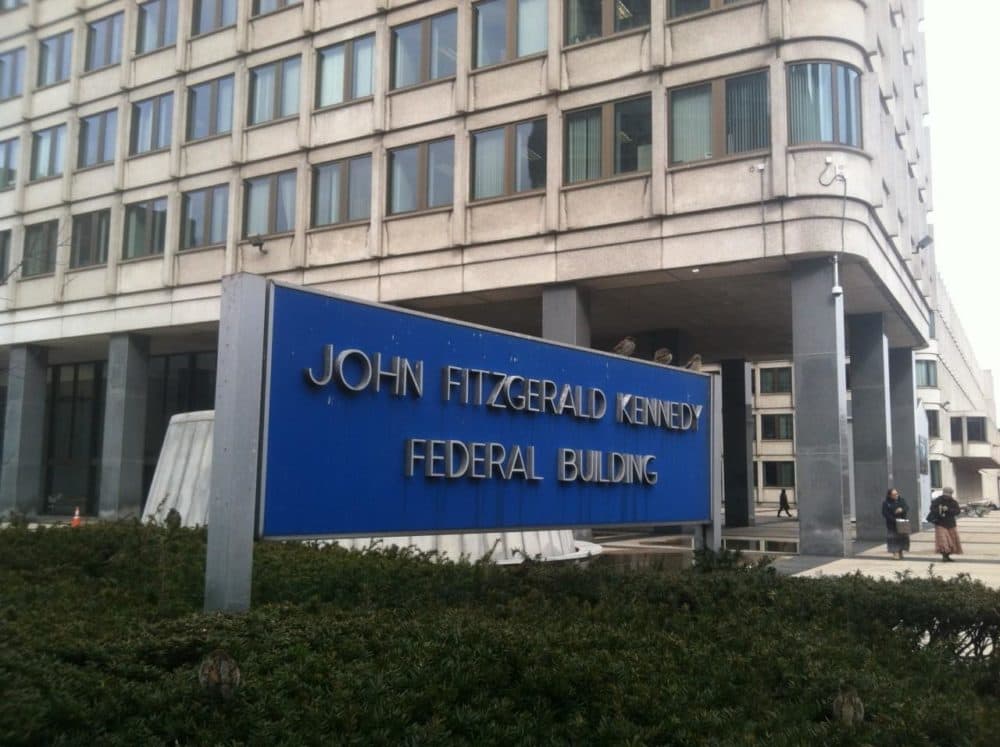Advertisement
Shutdown In Immigration Court A Respite For Some, An Injustice For Others
Resume
As the federal government shutdown enters its 14th day, the backlog of cases in immigration court continues to increase — drawing mixed reactions from immigration experts.
Since the shutdown, dockets in immigration court have been frozen for those who aren’t in custody. Some experts worry this means immigrants are being denied due process; others see it as a welcome respite, giving some immigrants more time to get their affairs in order.
Lawyers say the freeze comes as immigration proceedings have reached a frenzied pace under the Trump administration.
Providence-based immigration lawyer Hans Brember says he often has far too little time to build a defense for his clients.
With the shutdown, it’s as if time has stopped, he says.
"The court has been exceptionally busy for us. We're there almost every day going to immigration court in Boston," he says. "With the shutdown, it has allowed us to really sit back, take a look at what's happening in court, what needs to be done still on cases that might otherwise have to have been rushed."
The day after Christmas, the Department of Justice issued a memo outlining the workings of immigration court under the shutdown.
For immigrants in detention, cases are still being heard by judges obligated to work without pay. But for those not in custody, hearings are suspended until funding resumes and furloughed judges return to work.
That could mean people with hearings scheduled over the last few weeks could have to wait months, if not years, to get their day in court.
Bremer says the extra time can mean the difference between deportation and staying in the country.
“For some clients it is exceptionally beneficial," he says. "It is maybe exactly what they needed to be able to remain the United States long term, and even possibly win the case because we needed extra time to get a few documents or whatnot to help their case."
But as much as the extra time could help in some cases, in others the impact can be harmful, if not devastating.
Boston-based immigration attorney Kerry Doyle has a client with an asylum case who missed her court date because of the shutdown. The woman's husband is facing death threats in El Salvador, and she gets asylum, he'll be able to stay in the U.S.
The government shutdown was a curveball that could determine whether the man lives much longer.
"Her husband is in hiding, so we’re hoping the husband’s still alive when we need to try to bring him back, and considering the situation in his home country, that’s not a guarantee," says Doyle.
The furloughing of immigration judges also highlights the vast backlog of cases in courts across the country.
Dana Leigh Marks, a judge in San Francisco and president emeritus of the National Association of Immigration Judges, says the backlog could consist of more than a million cases. The government shutdown isn’t likely to help.
"I have a backlog now, a current caseload, of about 4,000 pending cases, and in a given week I would say that I see either in person or through documents and ruling on motions about 100 cases every week," she says.
Marks calls the furloughing of immigration judges an irony, rooted in the president’s fight against illegal immigration.
But others say the chaos of the shutdown is consistent with the aims of the Trump administration.
"Even if this is not due to a policy directive that targets certain immigrants, the effect it is producing is essentially the same. We are depriving immigrants of an opportunity to appear in immigration court," says Ivan Espinoza-Madrigal of the nonprofit Lawyers for Civil Rights.
While the lull in immigration court could help some immigrants build their cases, Espinoza-Madrigal says on the whole it’s denying people their right to due process.
This segment aired on January 4, 2019.
